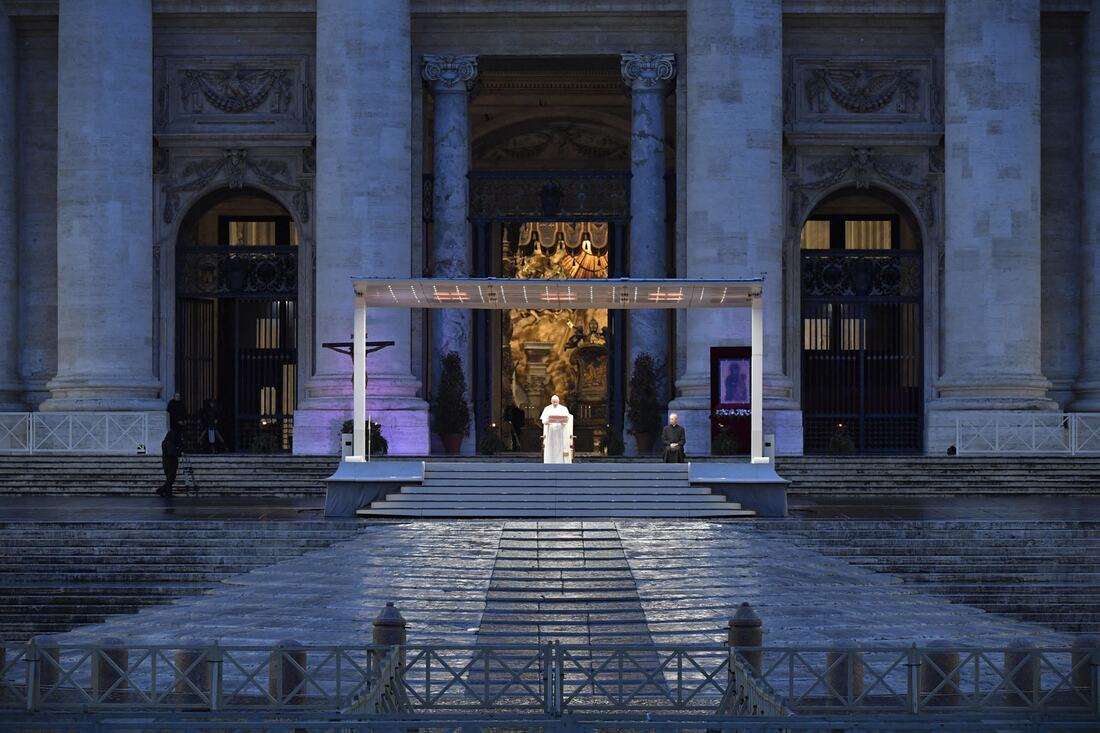The uncertainty and fear are also part of the disciples’ story. Christ's mission — his preference for the weak and total condemnation of the powerful — clearly disturbed business as usual for many, including some of his own disciples. Christ regularly provokes the powerful, discourages the use of arms, and predicts his own death. Much of what Christ did and said signalled that things were going to change and yet “the disciples did not understand any of this. Its meaning was hidden from them, and they did not know what he was talking about” (Luke 18:34). The disciples were clearly confused by much of what Christ did, and it’s easy to imagine the confusion expressed by the disciples turning to fear when Christ is arrested, crucified, and buried.
This confusion likely played a crucial role in the disciples’ lives. It’s difficult to say, but I believe the disciples understood Christ's teachings more fully because of the uncertainty they encountered on the road to Jerusalem. What was revealed to the disciples through the uncertainty of their Lenten journey? Surely some of these insights are recorded in the Gospels.
It’s important to note, however, that not all of Christ’s disciples were predisposed to the same uncertainty and fear. The story of the woman who prepares Christ for his death and the story of the women who discover Christ in the garden seem to suggest something different. These stories make me wonder if the lesser among Christ’s followers were more confident than their male counterparts about how Easter would unfold. Perhaps they weren’t surprised by the way Christ was treated. We can assume that these women were, after all, well acquainted with violent abuses of power. Such suffering continues today, hidden in plain sight. Perhaps, the suffering of Christ, and the confusion and fear which accompanied it, prepared the eyes of his male disciples to be opened to the truth and beauty of his now-famous saying that “the last shall be first and the first, last.”
It’s possible for the feelings that we are experiencing during our COVID Lenten journey to function in a similar fashion as they did in the Easter story. The uncertainty of the coronavirus is slowly awakening us to a new reality, one that in some respects has been here all along. Chasing wealth and power alienates by forcing people into a competition rather than companionship. The effects of pursuing wealth are especially damaging to those who can’t match the pace of the “strong.” COVID-19 has forced us to slow down. As the pace eases, many are once again appreciating the ways in which we depend on each other. The suffering and the beauty that we overlook because of our pursuit of endless wealth is rising to the surface. Just as the disciples’ experience of uncertainty and fear brought new insight into their lives, so too can the current pandemic reveal new life to us today.
In terms of beauty, we’ve been awoken to the beautiful way we depend on cashiers, health providers, bus drivers, migrant workers and stay-at-home parents. When the world slows, these essential services continue and often accelerate. We depend on these services, but more importantly, we depend on the beautiful people that make them happen. During this crisis, our confusion and fear are breaking down the illusion of our independence, revealing our interdependence.
In terms of suffering, we are slowly developing a better understanding of what it’s like to live in a daily state of crisis, something that’s normal for many. For those who struggle with mental health, housing, or addictions, ongoing social isolation has devastating consequences. For many, the only people they can call for help are also sources of pain. For those with means and support, it’s now a little bit easier to see how isolation can create or exaggerate barriers to health and wellness.
We pray, therefore, that the suffering and beauty of our Lenten COVID-19 journey reveals the way we depend on each other. More importantly, however, we pray that after the storm passes we enact these lessons by working to bring about a more equitable world; a world defined by mutual aid and cooperation rather than ever-accelerating competition. Already we can see what such a world might look like in practice: a living wage for all, including grocery store cashiers, and a universal basic income that starts at $2000 a month. Like Christ’s disciples, we now recognize that such a social order must be guided by mutual dependence and life rather than capital and a thirst for power; such is the new life declared by the resurrection.


 RSS Feed
RSS Feed

